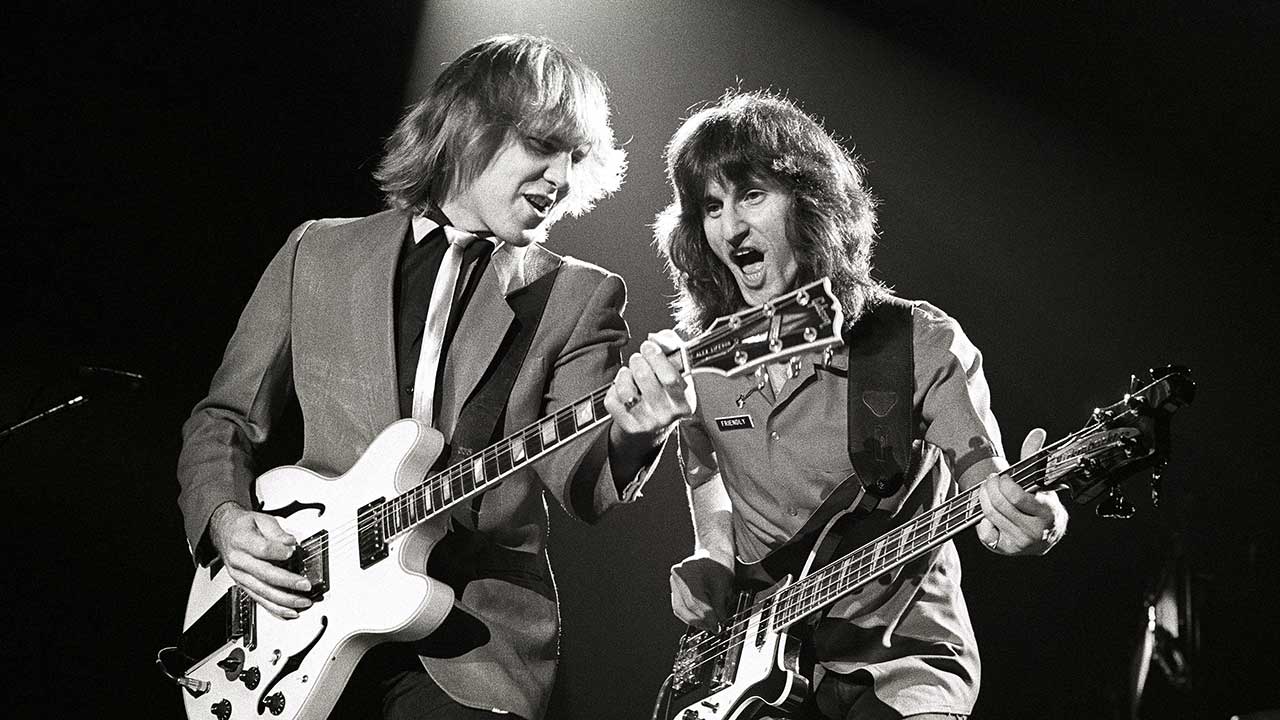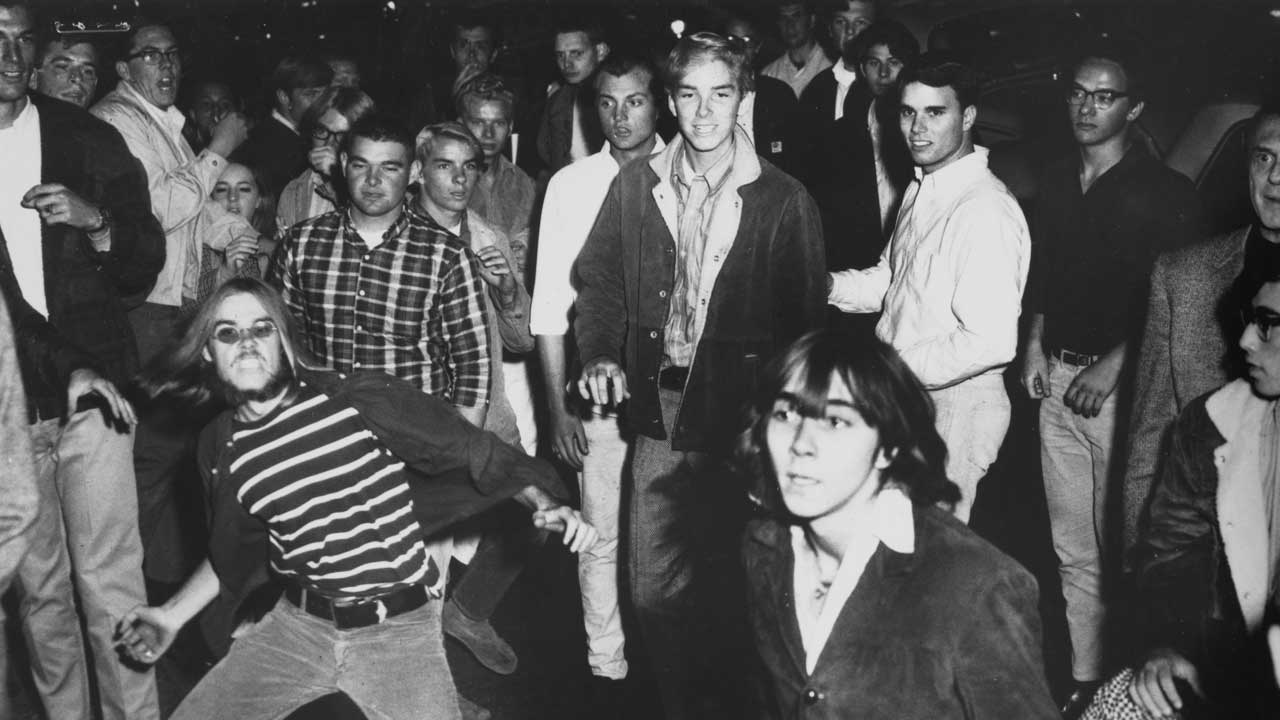Why I ❤️ Rush's Moving Pictures, by Mastodon's Bill Kelliher
Moving Pictures was the album that propelled Rush into the mainstream and onto the radio. Mastodon’s Bill Kelliher tells how he was seduced by the band’s organised chaos

Select the newsletters you’d like to receive. Then, add your email to sign up.
You are now subscribed
Your newsletter sign-up was successful
Want to add more newsletters?

Every Friday
Louder
Louder’s weekly newsletter is jam-packed with the team’s personal highlights from the last seven days, including features, breaking news, reviews and tons of juicy exclusives from the world of alternative music.

Every Friday
Classic Rock
The Classic Rock newsletter is an essential read for the discerning rock fan. Every week we bring you the news, reviews and the very best features and interviews from our extensive archive. Written by rock fans for rock fans.

Every Friday
Metal Hammer
For the last four decades Metal Hammer has been the world’s greatest metal magazine. Created by metalheads for metalheads, ‘Hammer takes you behind the scenes, closer to the action, and nearer to the bands that you love the most.

Every Friday
Prog
The Prog newsletter brings you the very best of Prog Magazine and our website, every Friday. We'll deliver you the very latest news from the Prog universe, informative features and archive material from Prog’s impressive vault.
I grew up in Victor in New York. My school was very segregated – the jocks, the punks, the metalheads and the smokers – but a lot of people were into Rush. Their first record reminded me of Led Zeppelin – tracks like Working Man and Finding My Way – and I was immediately enthralled.
As they developed, we were just amazed at the complexity and progginess. They were playing this sort of math-rock that really spoke to us as kids learning how to play. I started playing guitar aged 15. I had a friend who was a violinist and really musically inclined; he’s the one who turned me on to Rush in the mid-80s. We got him a $50 bass and he started working out all Geddy Lee’s basslines.
I think Moving Pictures was a very radio-friendly album for such a progressive band. Songs like Tom Sawyer and Red Barchetta were all over the radio when I was a kid – any time you turn on a rock radio station back home you’ll still hear Tom Sawyer: it’s on every 20 minutes somewhere, and every time I hear it I have to air-drum to it. It’s just one of the songs I grew up on at the roller skating rink, or trying to emulate at practice. It’s such an in-the-pocket jam, it tells a great story and it’s fun to listen to.
That’s the thing about Rush, they’ve got great grooves and then they’ll change them at the last second. The one that really sums up that era of the band for me though would have to be YYZ.
It was a completely, utterly ridiculous song, there was nothing like it, except maybe Eruption by Van Halen – but that was just guitar. These guys were writing songs that were like organised solos by each member, all three going nuts. It was organised chaos, like a jam session, but totally in a particular order and rhythm.
On YYZ they weren’t trying to write a hit, they were writing some crazy prog rock. My first band would cover it. I could do all the rhythm stuff, but once the solos came along I’d bow out. I’m trying to get Mastodon to cover it though!
Alex didn’t do a lot of overdubbing of rhythm when he played a solo. They were a proper three-piece, not trying to fudge anything. Bands now do all that layering, but with Rush what you hear is what you get.
Sign up below to get the latest from Classic Rock, plus exclusive special offers, direct to your inbox!
Alex has his own style, a very Gibson/Marshall lead sound, and there’s almost a Moroccan, Middle-Eastern or even gypsy sound. They’re so full of soul, adding a personal touch without going overboard. I was listening to Witch Hunt in my bunk recently; it has this evil, spooky feel to it. It’s heavy, and that’s the kind of shit I’m into.
Peart’s so tasty; the guy can do anything. Brann [Dailor, Mastodon’s drummer] writes our lyrics, and Neil’s are so good here. That line in Limelight: ‘I can’t pretend a stranger is a long-awaited friend’. Everyone knows who you are if you’re in the limelight, but you don’t know everybody.
I can relate to that – people get upset if they come up to you, shake your hand and talk to you, but you’re like, ‘I’m not trying to be a dick, but I just don’t know you’. They’re being really honest on that song. They’re telling people that everyone dreams about being this big band, but it’s not all it’s made out to be.
I grew up close to Canada [Victor lies south of Lake Ontario] so I felt a connection. They just sounded a little more intellectual to us, like they were professors of music. Maybe growing up in rural Canada, there wasn’t much else to do when the winter came. I know that’s what I did when it got too cold to go outside – I just stayed in and practised my guitar.
I started getting more into Rush as I progressed as a guitar player. The little nuances, the integration of keyboards and synths... It was all interesting to me.
It could be argued that Moving Pictures has been watered down because tracks from it have been played on the radio so much. But you have to remember that Rush were pioneers of early prog. Not many people were bringing this kind of music to the airwaves.
